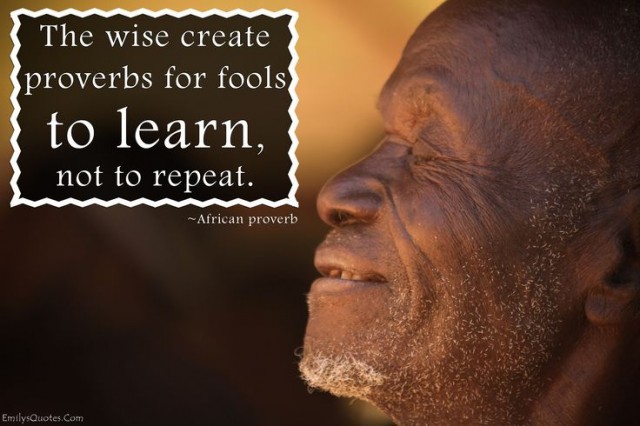Proverbs and Riddles
In most African societies, proverbs and riddles are forms of art. They are simple and elegant ways to communicate a lot of meaning in few words. Proverbs and riddles play an important role in the traditions of African speech and conversation.
African proverbs are sayings that express the shared wisdom of a culture. Based on close observation of life and nature, colored by thoughtful reflection, they are believed to express truths that no one can dispute. Many collectors and scholars of African art study proverbs, which are found in nearly all African cultures.

Proverbs are often used as a tactful and delicate way for people in close-knit African communities to comment on and correct each other's behavior. Some sayings express how people in a society are supposed to behave. The Jabo people of Liberia say that “a grown-up who [imitates] children is a fool.” Other proverbs sum up an event in life. When a person is laid low by misfortune, the Zulu of southern Africa say, “The beast has fallen on its horns.”
Like proverbs, African riddles are brief and based on observations of nature. However, with riddles, the listener is expected to guess the answer to a question or the meaning of a statement. Sometimes a riddle is nothing more than a sound. “Seh!” is a riddle of the Kamba people of Kenya. Its answer is “a needle stabbed the sand,” because “seh” is the sound of the needle entering the sand. In Africa, riddles are often used as the introduction to storytelling. They catch the audience's interest and prepare people for the meaning of the story that is to come. (See also Oral Tradition.)